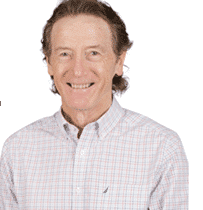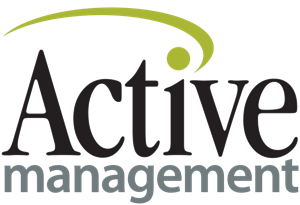Activating the industry through increased advocacy
Words by AUSactive CEO Barrie Elvish

As the peak association for the Australian health and fitness industry, representing members through advocacy with government, councils and other stakeholders is an important responsibility.
The importance of this function was put to the test during the pandemic when our industry was shut down for significant periods of time, challenged with inconsistent reopening protocols and frequently false information that gyms were a ‘hotbed’ of virus transmission. The latter despite AUSactive providing evidence based contrary data.
We’ve come a long way since then!
What the pandemic did teach us was engagement with State and Federal governments, local councils and other regulatory departments cannot be a flash in the pan. It’s a concerted effort than must be engrained within an organisation’s purpose.
Just over 12 months ago, we rebranded to AUSactive with a focus on activating every body, every way, every day. To achieve this vision we continue to engage, communicate and collaborate with all stakeholders that are associated with our industry and/or have the potential to make decisions or policy that impact our operations.
Our advocacy pillar has never been stronger, but we have only just scratched the surface in what we believe AUSactive can achieve both for our industry and the broader Australian community when it comes to getting active for our long-term physical and mental health.
I’m proud of what we have achieved in a short space of time, to establish a strong foundation for our ongoing Advocacy.
A look at AUSactive’s Advocacy over the past 12 months:
We made a budget submission to the Federal Government for:
- Funding to establish an Expert Advisory Group to develop a national physical activity strategy that will deliver the Government’s commitment to the Global Action Plan on Physical Activity to get 15% more inactive Australians more active by 2030
- Funding for the “Movement for Movement” program to target younger and older Australians to highlight the importance of physical activity in improving physical and mental health outcomes, preventing chronic disease and encouraging community participation / social connectivity
- Funding for fee-free vocational education and training at TAFE that would attract enrolments and ultimately employment in the exercise and fitness industry to replenish our Covid depleted workforce; and
- Funding to accelerate the AUSactive accreditation program, the only one that exists in the industry, to build credibility and create career opportunities for newly qualified exercise professionals.
Following our Federal budget submission, we are in discussions with the office of the Federal Minister for Skills and Training to find solutions to the significant skills shortage in the exercise, physical activity and fitness industry and advocate for these shortages to be addressed in the Skills Agreements that the Federal government is currently negotiating with the various State governments.
We have written to the Hon. Mark Butler, the Federal Minister for Health, asking that the House of Representatives Standing Committee on Health, Aged Care and Sport hold an inquiry into the impact of physical inactivity in Australia
We received Federal Government funding for the delivery of the nationwide All A.B.I.L.I.T.I.E.S. (Australia Brings Inclusivity to Life, Through Innovation, Transformation In an Exercising Society) program, aiming to drive organisational change in health and fitness businesses to enhance the lives of the broader community and safe effective group exercise participation for people with disabilities.
We have been successfully recognised as the Peak Body for the fitness sector in WA. The WA Department of Local Government, Sport and Cultural Industries (DLGSC) will work closely to support AUSactive to advocate, lead and develop its membership and improve the health and wellbeing of Western Australians.
We received recognition of the exercise and fitness sector as an ‘Essential Service’ in Queensland.
AUSactive has made recommendations to NSW politicians ahead of the March 2023 NSW State Election advocating for:
- Expanding the provision of activity vouchers for kids, for adult use, including in gyms, yoga and Pilates studios and for personal trainers offering supervised outdoor programs with a view to increasing physical activity as well as supporting businesses.
- Funding for a “Movement for Movement” program to get people active.
- Creation of a specific Preventative Health Portfolio that connects the Health and Sport & Recreation ministries.
- Implementation of a Fitness Code of Practice to instil consumer confidence, increase participation and set appropriate standards for the fitness industry.
- Action to address the skills shortage in the exercise and physical activity sector and ensure that free TAFE and vocation education courses are allocated for upskilling the industry and increasing employment pathways for prospective students.
- Classification of exercise and fitness facilities as ‘Essential Services’ to help build the sector’s longevity.
- Endorsement of peak body status for AUSactive to enable us to have greater involvement in increasing the physical activity of all communities.
A Skip the Permit program was rolled-out in certain LGAs In Victoria, whereby personal trainer permits for running sessions in outdoor areas are fast-tracked with no fees or licencing cost; a previously expensive process that could take weeks for approval was streamlined to 20min licenses.
AUSactive has continued to meet with federal politicians to:
- Advocate for a national, public preventative health campaign encouraging physical activity; • Advocate for an increase in government investment in prevention (as a percentage of the federal preventative health budget); and
- Advocate for the implementation of the World Health Organisation Global Action Plan on Physical Activity (GAPPA) – despite in 2018 the Australian Government signed up to the GAPPA to have 15% of inactive Australians more active by 2030 there has been negligible progress to date.
Other Federal, State and Local government engagement including:
- Assistant Minister for Health and Aged Care, the Hon Ged Kearney in relation to a national public preventative health campaign encouraging physical activity, implementing the WHO’s Global Action
Plan on Physical Activity, reducing the impact of physical inactivity on the government’s health budget, increasing interaction between the exercise sector and the Department of Health and increasing government investment in preventative health measures.
- The Office of Assistant Treasurer, the Hon Stephen Jones, in relation to reducing the impact of physical inactivity on the government’s health budget and addressing skills and labour shortage in the fitness industry
- The Office of Minister for Skills and Training, the Hon Brendan O’Connor in relation to addressing skills and labour shortage in the fitness industry
- Dr Mike Freelander MP, in relation to a national public preventative health campaign encouraging physical activity, implementing the WHO’s Global Action Plan on Physical Activity and reducing the impact of physical inactivity on the government’s health budget
- Maria Vamvakinou MP, in relation to a national public preventative health campaign encouraging physical activity, reducing the impact of physical inactivity on the government’s health budget and addressing skills and labour shortage in the fitness industry
- Premier Dominic Perrottet and Minister Brad Hazzard (NSW state) in relation to COVID regulations • The Office of NSW Minister for Sport and Minister for Skills and Training, the Hon Alister Henskens SC in relation to physical activity vouchers, Fitness Code of Practice legislation, addressing skills shortages in the fitness industry and recognition as a Peak Body in NSW.
- Alex Greenwich MP (NSW) in relation to physical activity vouchers, Fitness Code of Practice legislation and addressing skills shortages in the fitness industry
- The Office of Minister Tara Cheyne (ACT) in relation to fitness activity vouchers and legislation changes to 24 hour trade
- Fair Trading & Compliance, Access Canberra (ACT) in relation to updates to the Fitness Code of Practice legislation and committee engagement under the Code
- The Offices of the Hon Martin Pakula, Hon Jaala Pulford and Hon Ros Spence (VIC) in relation to COVID regulations, fitness activity vouchers and landlord protections
- Communities, Sport and Recreation (TAS) in relation to post COVID job opportunities
- The Office of the Hon Andrea Michaels (SA) in relation to updates to the Fitness Code of Practice legislation and addressing skills shortages in the fitness Industry
- The Department of Recreation, Sport and Racing (SA) in relation to fitness activity vouchers and increasing physical activity levels
- Consumer Protection (WA) in relation to updates to the Fitness Code of Practice legislation.
An exhaustive year that has generated some immediate positive outcomes and more importantly laid the groundwork for ongoing productive dialogue with government at all levels.
FURTHER INFORMATION
For media enquiries and interview opportunities, please contact:
AUSactive media team
Media@ausactive.org.au
Barrie Elvish, AUSactive CEO
0403 466 629 | barrie.elvish@ausactive.org.au

Barrie brings over 20 years’ CEO experience of successful organisational change, strategic development and business growth across a range of sectors such as Education, Health and Community Services.
You’ll regularly hear Barrie talking about his passions and experiences including surfing, Triathlons, keeping his mental health and wellbeing strong through exercise, trekking the Kokoda Trail and Macchu Pichu, Led Zeppelin and Hot Rods – all for the purpose of making meaningful connections. Barrie has a longstanding personal and professional interest in adventure play for children and is currently completing a Doctorate in Early Childhood Education.
Today Barrie is proud to be the CEO of AUSactive, the peak national health and fitness industry association activating everybody, every way, every day.
